
In May, the Computing Research Association (CRA) and its Computing Community Consortium (CCC) launched the CIFellows 2020 program, with strong support from the National Science Foundation (NSF). The program aims to provide a career-enhancing bridge experience for recent and soon-to-be computing PhD graduates to combat hiring disruptions due to COVID. This effort was modeled after the CRA/CCC’s NSF-funded Computing Innovation Fellows Programs with cohorts starting 2009, 2010, and 2011, which funded 127 CIFellows following the 2008 recession.
After only a month following the program’s announcement, 550 applications were submitted spanning a wide variety of research areas and over 140 universities. More than 270 members of the community came out to support the effort by reviewing all applications under the tight deadline of two weeks.
The 2020 CIFellows class is 59 researchers, 52% of whom are women, covering a wide variety of research areas. The program involved 59 different universities with CIFellows coming from 46 unique institutions, and starting their CIFellowships at 43 different universities. You can find out more about each CIFellow here.
CRA and CCC are working with the computing community to ensure that this program facilitates career and skill growth for the CIFellows in supportive environments to foster the talent of the future computing research community.
Committees
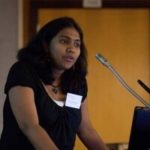 Aruna Balasubramanian
Aruna Balasubramanian
Aruna Balasubramanian is an Assistant Professor at Stony Brook University. She was a CIFellow, part of the 2011 cohort, and did her Postdoctoral Research at the University of Washington. Aruna works in the areas of mobile systems and networking. She has recently been working on a diverse range of topics including improving Web access in developing regions, improving accessibility, and making mobile applications better with respect to user-facing metrics. Aruna is a recipient of a Mid-Career Faculty Diversity Award at Stony Brook University, the N2Women Rising Stars Award, a VMWare faculty early career award, a Google Research Award, a Best Paper Award at UbiComp, and the Applied Networking Research Prize. Her dissertation won the UMass Outstanding Dissertation Award and was the SIGCOMM Outstanding Dissertation Award runner up.
 Andrew Bernat, ex officio
Andrew Bernat, ex officio
Andrew Bernat was a founding member and chair of the Computer Science Department at the University of Texas at El Paso (spending 20 years there), NSF Program Director and is currently the Executive Director of the Computing Research Association, whose mission is to strengthen research and education in the computing fields, expand opportunities for women and minorities, and improve public and policymaker understanding of the importance of computing and computing research in our society. In recognition of “… his success in creating arguably the strongest computer science department at a minority-serving institution …”, the Computing Research Association honored him with the 1997 A. Nico Habermann Award and he is a AAAS Fellow. He has some 65 publications and (pre-CRA) over $5,000,000 in external funding.
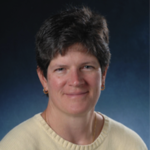 Elizabeth Bradley
Elizabeth Bradley
Liz Bradley holds the SB, SM, and PhD degrees from MIT. She has been with the Department of Computer Science at the University of Colorado since 1993 and is currently the Chair of the Computing Research Association’s Computing Community Consortium (CCC). Her research interests include nonlinear dynamics and nonlinear time-series analysis. She is a member of the external faculty of the Santa Fe Institute and the recipient of a National Young Investigator award, Packard and Radcliffe Fellowships, and the University of Colorado system’s highest teaching award.
Ann Schwartz Drobnis, ex officio
Dr. Ann Schwartz Drobnis is the Director of the Computing Community Consortium. Most recently, she was an Albert Einstein Distinguished Educator Fellow at the National Science Foundation working on education and workforce development issues for the CISE Directorate. Ann spent most of her time working on the CS10K Project, whose goal is to get academically rigorous computer science courses into 10,000 high schools by 2016. This is a much needed effort to create the research and workforce pipeline that our field so desperately needs. Prior to her time at NSF, she taught high school computer science and math at Thomas Jefferson High School for Science and Technology. She has a passion for broadening participation in computing, as her doctoral research was focused on ways to bring more females into the field.
 Mark D. Hill
Mark D. Hill
Mark D. Hill is the John P. Morgridge Professor and Gene M. Amdahl Professor of Computer Sciences and Electrical & Computer Engineering at the University of Wisconsin–Madison, where he also co-leads the Wisconsin Multifacet project. His research interests include parallel computer system design, memory system design, computer simulation, deterministic replay and transactional memory. He earned a PhD from University of California, Berkeley. He is the CCC Chair Emeritus, a CRA Board Member, an ACM Fellow, a Fellow of the IEEE, and won the 2019 Eckert-Mauchly Award.
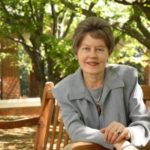 Anita Jones
Anita Jones
Anita Jones is University Professor Emerita at the University of Virginia. She is a founder of the Computing Community Consortium (CCC). After the completion of the first Computing Innovation Fellows program, she led a CCC research effort to establish best practices for the support of computer science postdocs. Jones served as Director of Defense Research and Engineering, overseeing the DoD science and technology program, including its research laboratories and DARPA. She was Vice Chair of the National Science Board and a member of the governing council of the National Academy of Engineering (NAE). Jones was awarded the IEEE Founders’ Medal, the Ada Lovelace Award by the Association of Women in Computing, the Arthur M. Bueche Award by the NAE, and the Philip Abelson Award by the AAAS. The U.S. Navy named a seamount in the North Pacific (51º 25’ N 159º 10’ W) for her.
 Stefan Savage
Stefan Savage
Stefan Savage is a professor of Computer Science and Engineering at the University of California, San Diego. He received his Ph.D. in Computer Science and Engineering from the University of Washington and a B.S. in Applied History from Carnegie Mellon University. Savage is a full-time empiricist, whose research interests lie at the intersection of computer security, distributed systems and networking. He currently serves as co-director of UCSD’s Center for Network Systems (CNS) and for the Center for Evidence based Security Research (CESR). Savage is a MacArthur Fellow, a Sloan Fellow, an ACM Fellow, and is a recipient of the ACM Prize in Computing and the ACM SIGOPS Weiser Award.
 Ellen Zegura
Ellen Zegura
Ellen Zegura is Regents’ Professor and Fleming Endowed Chair holder in the School of Computer Science at Georgia Tech. She works in two primary areas, computer networking and computing for social good. In computer networking, she is known for her work on the GT-ITM suite of Internet topology tools, which remain in use 20 years after release. In mobile wireless networking, she and colleagues invented the concept of message ferries to facilitate communications in environments where network connectivity is unreliable and/or sparse. Her work in computing and social good includes work in Liberia, with Native Americans in Southern California, and with residents of the Westside of Atlanta. She is a Fellow of the IEEE, a Fellow of the ACM, and an elected member of the Computing Research Association Board (CRA). Since Fall 2014 she has been on the Executive Board of the CRA.
 Aruna Balasubramanian
Aruna Balasubramanian
Aruna Balasubramanian is an Assistant Professor at Stony Brook University. She was a CI Fellow, part of the 2011 cohort, and did her Postdoctoral Research at the University of Washington. Aruna works in the areas of mobile systems and networking. She has recently been working on a diverse range of topics including improving Web access in developing regions, improving accessibility, and making mobile applications better with respect to user-facing metrics. Aruna is a recipient of a Mid-Career Faculty Diversity Award at Stony Brook University, the N2Women Rising Stars Award, a VMWare faculty early career award, a Google Research Award, a Best Paper Award at UbiComp, and the Applied Networking Research Prize. Her dissertation won the UMass Outstanding Dissertation Award and was the SIGCOMM Outstanding Dissertation Award runner up.
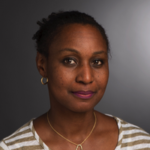 Ifeoma Nwogu
Ifeoma Nwogu
Ifeoma Nwogu is an Assistant Professor in Computer Science at the Rochester Institute of Technology, since January 2017. Before that she was a Research Scientist at the Center for Unified Biometrics and Sensors (CUBS) and the Center of Excellence for Document Analysis and Recognition (CEDAR), from October 2011 till September 2016.
Ifeoma completed her PhD in 2009 at the Computer Science and Engineering department at the University at Buffalo, SUNY (UB) as an NSF IGERT Fellow and was an NSF-sponsored Computing Innovation Postdoctoral Fellow at the Computer Science department at the University of Rochester, working with Dr. Chris Brown in Computer Vision. Before that, she completed her master’s degree in Computer and Information Science at the University of Pennsylvania and her Electrical Engineering undergraduate degree at the University of Lagos, Nigeria.
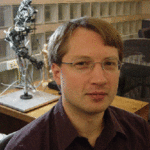 Brian Scassellati
Brian Scassellati
Brian Scassellati is the A. Bartlett Giamatti Professor of Computer Science, Cognitive Science, and Mechanical Engineering at Yale University. His research focuses on understanding how humans and robots interact with each other, using methods from artificial intelligence to build smarter and more interactive machines as well as methods from psychology to understand how robots reveal our uniquely human social capabilities. He and his students have worked to build socially assistive robots that help children with autism spectrum disorder learn social skills, collaborative manufacturing robots that work side-by-side with people to help with everyday tasks, and humanoid robots that help us understand why we treat some robots as objects and other robots like people.
Scassellati received his Ph.D. in Computer Science from the Massachusetts Institute of Technology in 2001. He currently serves on the Executive Council of the Association for the Advancement of Artificial Intelligence (AAAI). He has been the chair or program chair for the Annual Meeting of the Cognitive Science Society, the ACM/IEEE International Conference on Human-Robot Interaction, and the IEEE International Conference on Development and Learning.
 Bobby Schnabel
Bobby Schnabel
 Andrew Bernat
Andrew Bernat
Andrew Bernat was a founding member and chair of the Computer Science Department at the University of Texas at El Paso (spending 20 years there), NSF Program Director and is currently the Executive Director of the Computing Research Association, whose mission is to strengthen research and education in the computing fields, expand opportunities for women and minorities, and improve public and policymaker understanding of the importance of computing and computing research in our society. In recognition of “… his success in creating arguably the strongest computer science department at a minority-serving institution …”, the Computing Research Association honored him with the 1997 A. Nico Habermann Award and he is a AAAS Fellow. He has some 65 publications and (pre-CRA) over $5,000,000 in external funding.
 Elizabeth Bradley
Elizabeth Bradley
Liz Bradley holds the SB, SM, and PhD degrees from MIT. She has been with the Department of Computer Science at the University of Colorado since 1993 and is currently the Chair of the Computing Research Association’s Computing Community Consortium (CCC). Her research interests include nonlinear dynamics and nonlinear time-series analysis. She is a member of the external faculty of the Santa Fe Institute and the recipient of a National Young Investigator award, Packard and Radcliffe Fellowships, and the University of Colorado system’s highest teaching award.
 Ann Schwartz Drobnis
Ann Schwartz Drobnis
Dr. Ann Schwartz Drobnis is the Director of the Computing Community Consortium. Most recently, she was an Albert Einstein Distinguished Educator Fellow at the National Science Foundation working on education and workforce development issues for the CISE Directorate. Ann spent most of her time working on the CS10K Project, whose goal is to get academically rigorous computer science courses into 10,000 high schools by 2016. This is a much needed effort to create the research and workforce pipeline that our field so desperately needs. Prior to her time at NSF, she taught high school computer science and math at Thomas Jefferson High School for Science and Technology. She has a passion for broadening participation in computing, as her doctoral research was focused on ways to bring more females into the field.
 Mark D. Hill
Mark D. Hill
Mark D. Hill is the John P. Morgridge Professor and Gene M. Amdahl Professor of Computer Sciences and Electrical & Computer Engineering at the University of Wisconsin–Madison, where he also co-leads the Wisconsin Multifacet project. His research interests include parallel computer system design, memory system design, computer simulation, deterministic replay and transactional memory. He earned a PhD from University of California, Berkeley. He is the CCC Chair Emeritus, a CRA Board Member, an ACM Fellow, a Fellow of the IEEE, and won the 2019 Eckert-Mauchly Award.
 Ellen Zegura
Ellen Zegura
Ellen Zegura is Regents’ Professor and Fleming Endowed Chair holder in the School of Computer Science at Georgia Tech. She works in two primary areas, computer networking and computing for social good. In computer networking, she is known for her work on the GT-ITM suite of Internet topology tools, which remain in use 20 years after release. In mobile wireless networking, she and colleagues invented the concept of message ferries to facilitate communications in environments where network connectivity is unreliable and/or sparse. Her work in computing and social good includes work in Liberia, with Native Americans in Southern California, and with residents of the Westside of Atlanta. She is a Fellow of the IEEE, a Fellow of the ACM, and an elected member of the Computing Research Association Board (CRA). Since Fall 2014 she has been on the Executive Board of the CRA.
 Emery Berger
Emery Berger
Emery Berger is a Professor in the College of Information and Computer Sciences, University of Massachusetts Amherst. He graduated with a Ph.D. in Computer Science from the University of Texas at Austin in 2002. Professor Berger has been a Visiting Scientist at Microsoft Research and at the Universitat Politècnica de Catalunya (UPC) / Barcelona Supercomputing Center(BSC). Professor Berger’s research spans programming languages, runtime systems, and operating systems, with a particular focus on systems that transparently improve reliability, security, and performance. He is the creator of various widely-used software systems including Hoard, DieHard and DieHarder. His honors include a Microsoft Research Fellowship, an NSF CAREER Award, a Lilly Teaching Fellowship, the Distinguished Artifact Award for PLDI 2014, the Most Influential Paper Award at OOPSLA 2012, the Most Influential Paper Award at PLDI 2016, the ASPLOS 2019 Influential Paper Award, four CACM Research Highlights, a Google Research Award, a Microsoft SEIF Award. Professor Berger is currently serving his second term as an elected member of the SIGPLAN Executive Committee.
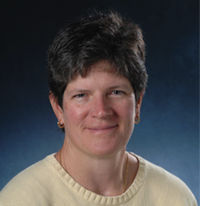 Elizabeth Bradley
Elizabeth Bradley
Liz Bradley holds the SB, SM, and PhD degrees from MIT. She has been with the Department of Computer Science at the University of Colorado since 1993 and is currently the Chair of the Computing Research Association’s Computing Community Consortium (CCC). Her research interests include nonlinear dynamics and nonlinear time-series analysis. She is a member of the external faculty of the Santa Fe Institute and the recipient of a National Young Investigator award, Packard and Radcliffe Fellowships, and the University of Colorado system’s highest teaching award.
 Mark D. Hill
Mark D. Hill
Mark D. Hill is the John P. Morgridge Professor and Gene M. Amdahl Professor of Computer Sciences and Electrical & Computer Engineering at the University of Wisconsin–Madison, where he also co-leads the Wisconsin Multifacet project. His research interests include parallel computer system design, memory system design, computer simulation, deterministic replay and transactional memory. He earned a PhD from University of California, Berkeley. He is the CCC Chair Emeritus, a CRA Board Member, an ACM Fellow, a Fellow of the IEEE, and won the 2019 Eckert-Mauchly Award.
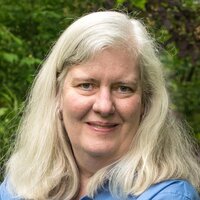 Jessica Hodgins
Jessica Hodgins
Jessica Hodgins is a Professor in the Robotics Institute and Computer Science Department at Carnegie Mellon University, where she received her Ph.D. in 1989.. From 2008-2016, she founded and ran research labs for Disney, rising to VP of Research and from 2005-2015, she was Associate Director for Faculty in the Robotics Institute. Prior to moving to Carnegie Mellon in 2000, she was an Associate Professor and Assistant Dean in the College of Computing at Georgia Institute of Technology. Her research focuses on computer graphics, animation, and robotics with an emphasis on generating and analyzing human motion. She has received a NSF Young Investigator Award, a Packard Fellowship, and a Sloan Fellowship. She was an elected director at large on the ACM SIGGRAPH Executive Committee from 2012-2017 and in 2017 she was elected ACM SIGGRAPH President. In 2010, she was awarded the ACM SIGGRAPH Computer Graphics Achievement Award and in 2017 she was awarded the Steven Anson Coons Award for Outstanding Creative Contributions to Computer Graphics.
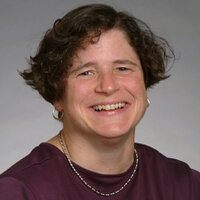 Leslie Pack Kaelbling
Leslie Pack Kaelbling
Leslie Pack Kaelbling is a Professor of Computer Science and Engineering at MIT. She has previously held positions at Brown University, the Artificial Intelligence Center of SRI International, and at Teleos Research. Prof. Kaelbling has done substantial research on designing situated agents, mobile robotics, reinforcement learning, and decision-theoretic planning. In 2000, she founded the Journal of Machine Learning Research, a high-quality journal that is both freely available electronically as well as published in archival form; she currently serves as editor-in-chief. She is an NSF Presidential Faculty Fellow, a former member of the AAAI Executive Council, the 1997 recipient of the IJCAI Computers and Thought Award, a trustee of IJCAII and a fellow of the AAAI. She received an A. B. in Philosophy in 1983 and a Ph. D. in Computer Science in 1990, both from Stanford University.
 Sampath Kannan
Sampath Kannan
Sampath Kannan is the Henry Salvatori Professor of Computer and Information Science, and Chair of the department at the University of Pennsylvania. Kannan joined Penn Engineering in 1994 after a postdoctoral fellowship at Princeton, and four years on the faculty at the University of Arizona. He received his bachelor’s degree from the Indian Institute of Technology, Bombay; his master’s from Princeton University; and his PhD from the University of California, Berkeley in 1989. His research interests are broadly in algorithms and complexity. He is a member of the Graduate Group in Genomics and Computational Biology..He served as the Associate Dean for Academics for the School of Engineering and Applied Science at Penn. He also served as the Division Director for Computer and Communications Foundations Division at NSF, and as the Associate Director for Theoretical Computer Science activities at the Simons Foundation. He is a recipient of the NSF Research Initiation Award, the Ford Motor Company best advisor award in the School of Engineering, and the ACM SIGACT Distinguished Service Prize, and is a Fellow of the ACM.
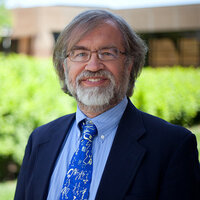 Benjamin Kuipers
Benjamin Kuipers
Benjamin Kuipers is a Professor of Computer Science and Engineering at the University of Michigan. He was previously an endowed Professor in Computer Sciences at the University of Texas at Austin, where he served as Department Chair. He received his B.A. from Swarthmore College, his Ph.D. from MIT, and he is a Fellow of AAAI, IEEE, and AAAS. His research in artificial intelligence and robotics focuses on the representation, learning, and use of foundational domains of knowledge, including knowledge of space, dynamical change, objects, and actions. He is currently investigating ethics as a foundational domain of knowledge for robots and other AIs that may act as members of human society.
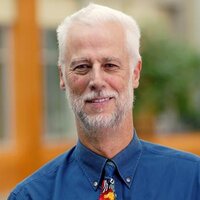 Richard E. Ladner
Richard E. Ladner
Richard E. Ladner, Professor Emeritus in the Paul G. Allen School of Computer Science & Engineering, graduated from St. Mary’s College of California with a B.S. in 1965 and received a Ph.D. in mathematics from the University of California, Berkeley in 1971, at which time he joined the faculty of the University of Washington. In addition to his appointment in the Department of Computer Science & Engineering, he held Adjunct appointments in the Department of Electrical Engineering and in the Department of Linguistics. After many years of research in theoretical computer science, he has turned his attention to accessibility technology research, especially technology for deaf, deaf-blind, hard-of-hearing, and blind people. In addition to research, he is active in promoting the inclusion of persons with disabilities in computing fields. He is the Principal Investigator for the National Science Foundation funded AccessComputing and AccessCSforAll. He is currently on the Editorial Boards for ACM Transactions on Accessible Computing and Communications of the ACM and although he is officially retired, he continues to work on accessibility research and his outreach projects.
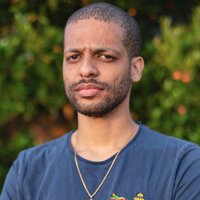 Jelani Nelson
Jelani Nelson
Jelani Nelson is a Professor of EECS at UC Berkeley as a member of the Theory Group. Prior to UC Berkley he held positions at Harvard as an Associate Professor of Computer Science, John L. Loeb Associate Professor of Engineering and Applied Sciences, and Assistant Professor of Computer Science. He has been a member of the Institute for Advanced Study and held a postdoc positions at Princeton University and the Mathematical Sciences Research Institute. He received his Ph.D. in 2011 from the Massachusetts Institute of Technology where he also received a Masters in Engineering and an S.B. in Mathematics and Computer Science.
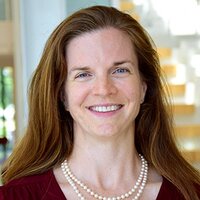 Katie Siek
Katie Siek
Katie Siek is an associate professor in Informatics at Indiana University. Her primary research interests are in human computer interaction, health informatics, and ubiquitous computing. More specifically, she is interested in how sociotechnical interventions affect personal health and well being. Her research is supported by the National Institutes of Health, the Robert Wood Johnson Foundation, and the National Science Foundation including a five-year NSF CAREER award. She has been awarded a CRA-W Borg Early Career Award (2012) and a Scottish Informatics and Computer Science Alliance Distinguished Visiting Fellowship (2010 & 2015).
 Ellen Zegura
Ellen Zegura
Ellen Zegura is Regents’ Professor and Fleming Endowed Chair holder in the School of Computer Science at Georgia Tech. She works in two primary areas, computer networking and computing for social good. In computer networking, she is known for her work on the GT-ITM suite of Internet topology tools, which remain in use 20 years after release. In mobile wireless networking, she and colleagues invented the concept of message ferries to facilitate communications in environments where network connectivity is unreliable and/or sparse. Her work in computing and social good includes work in Liberia, with Native Americans in Southern California, and with residents of the Westside of Atlanta. She is a Fellow of the IEEE, a Fellow of the ACM, and an elected member of the Computing Research Association Board (CRA). Since Fall 2014 she has been on the Executive Board of the CRA.
